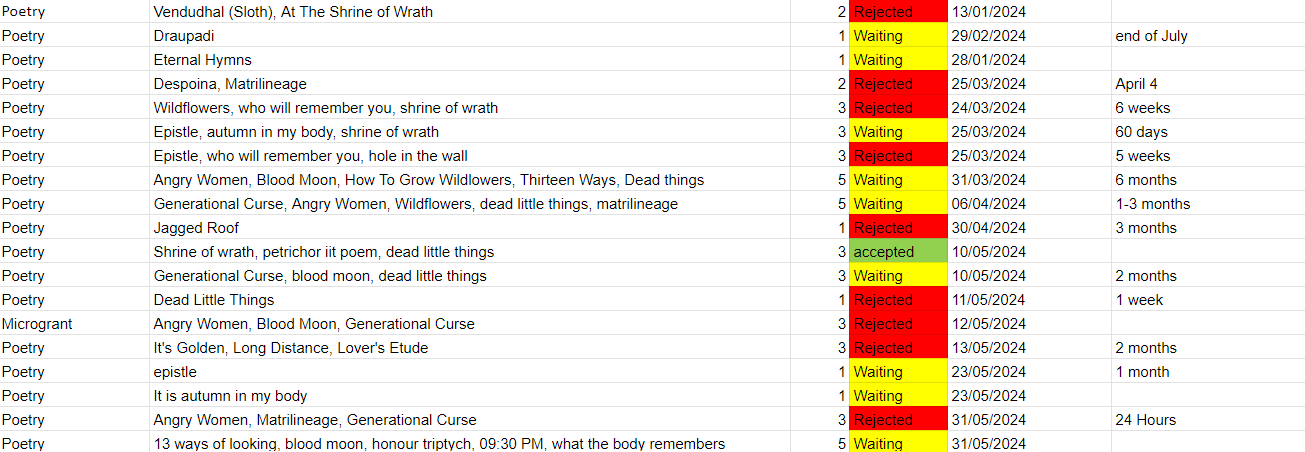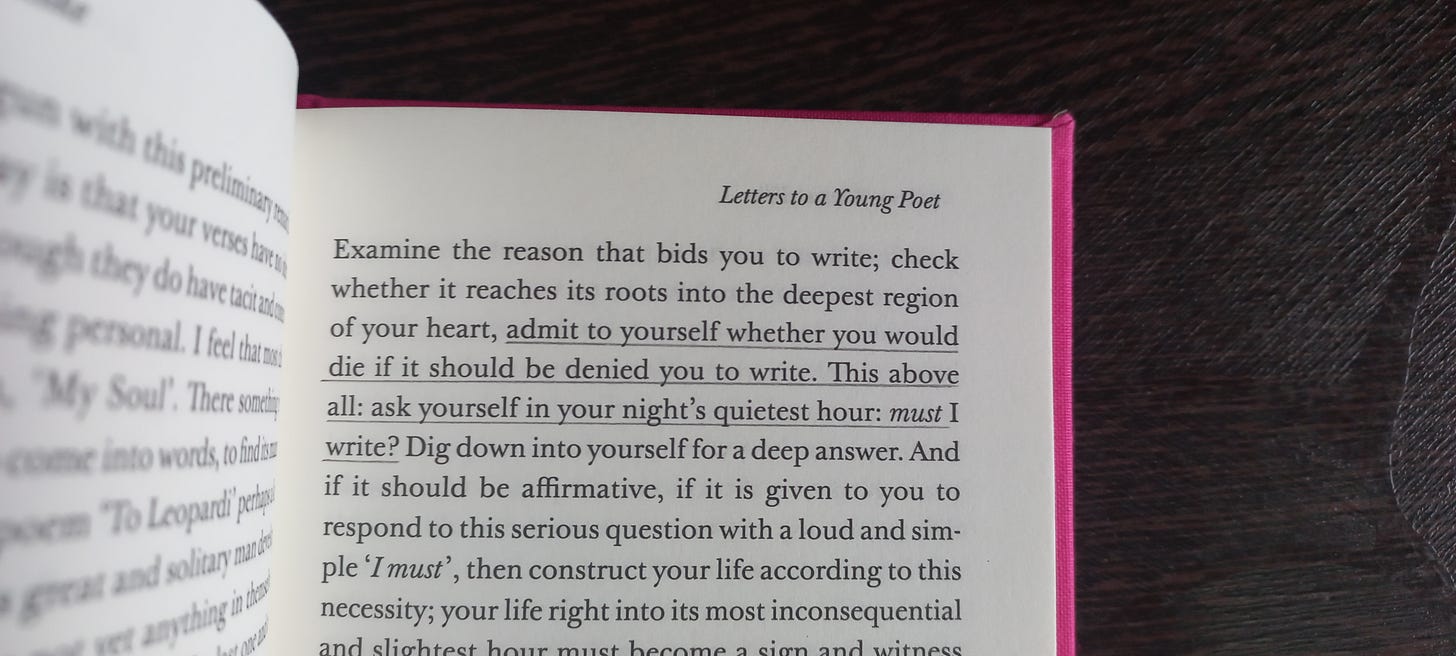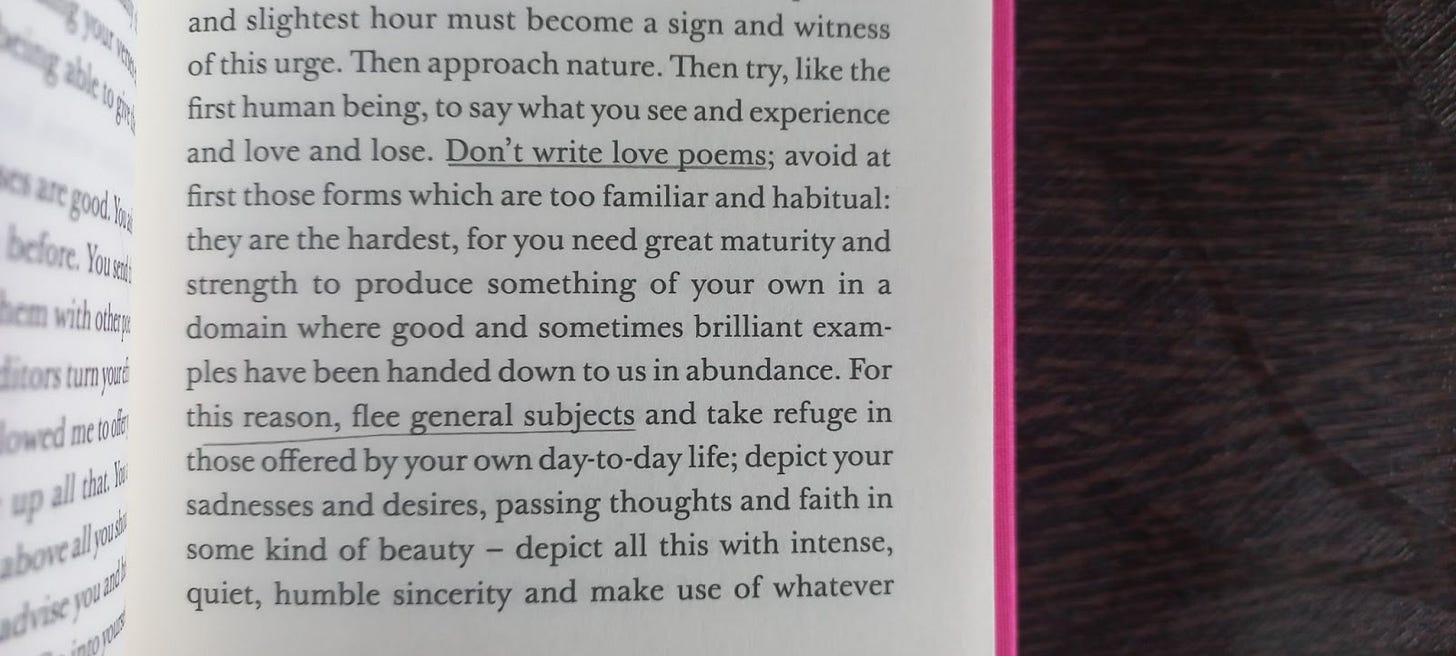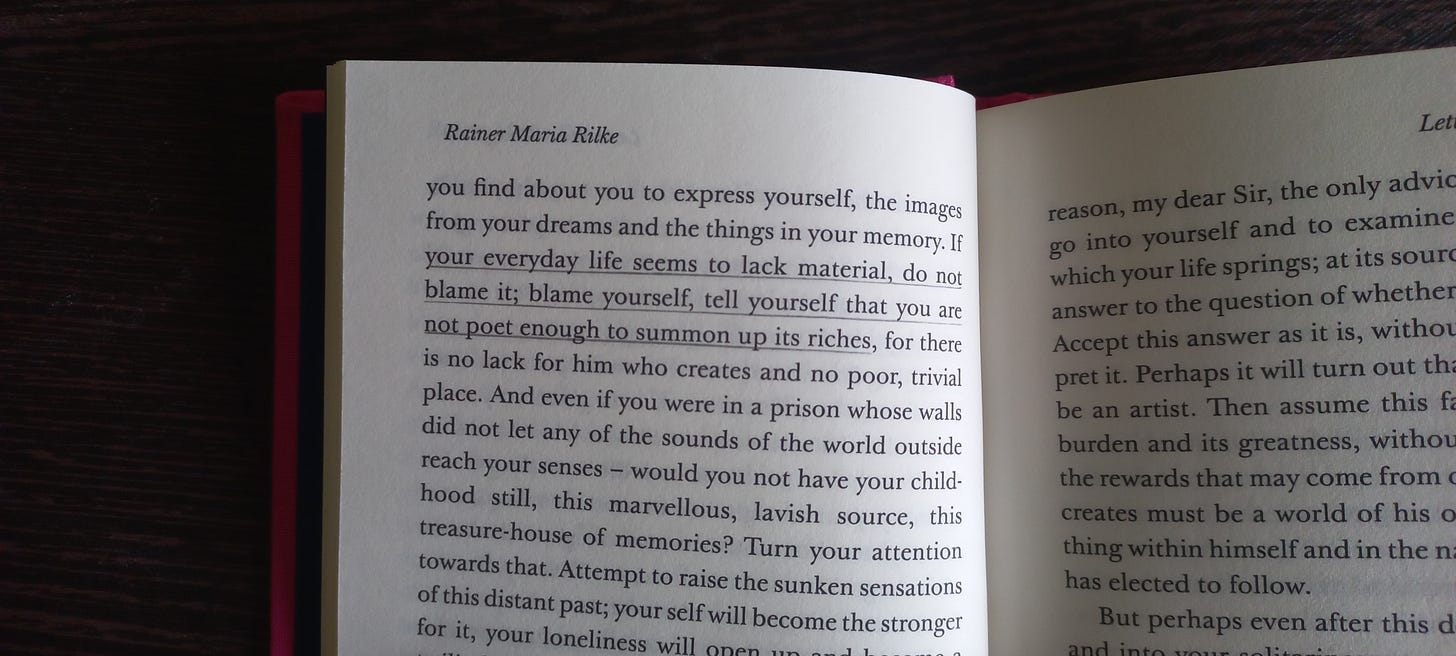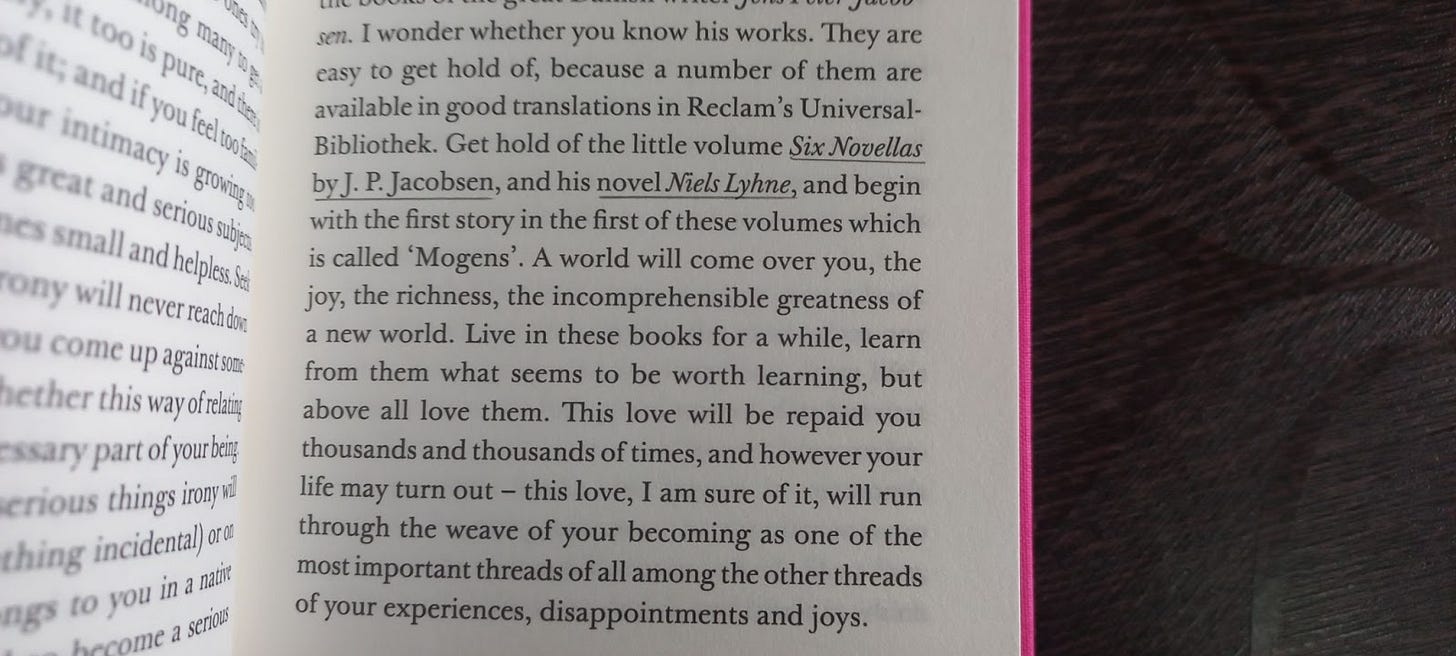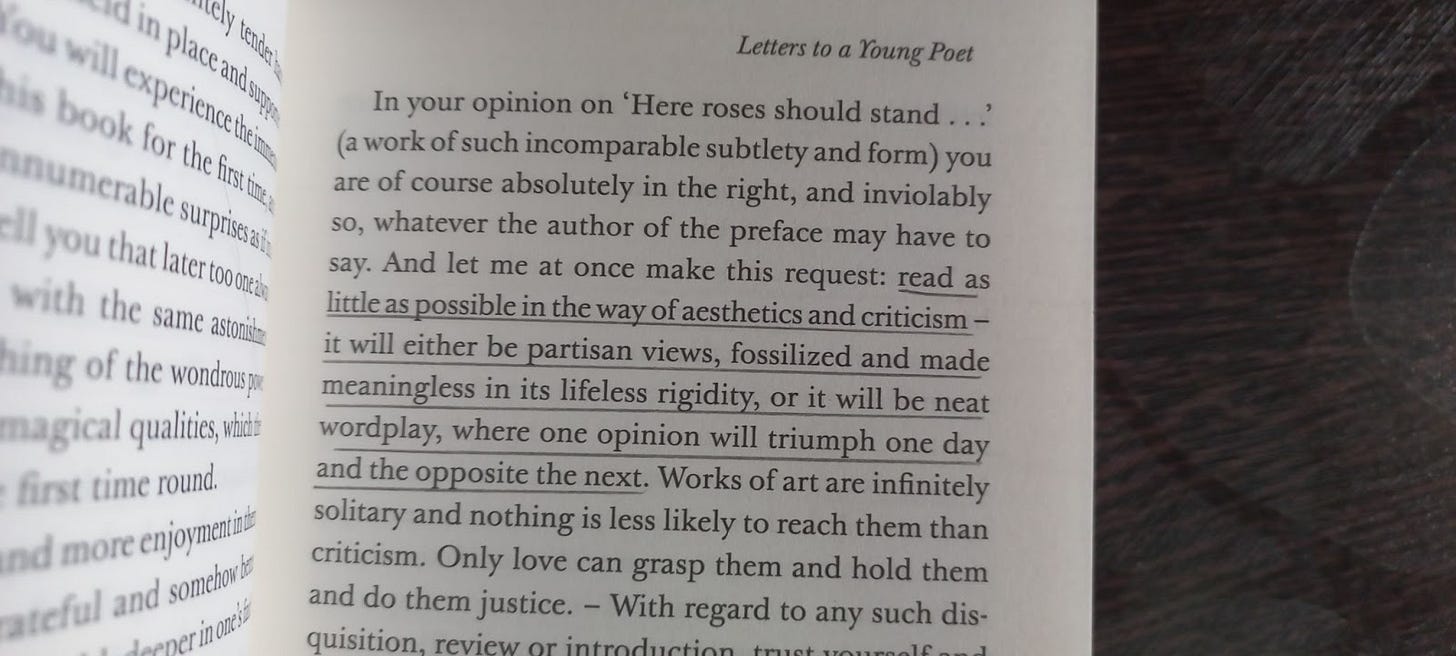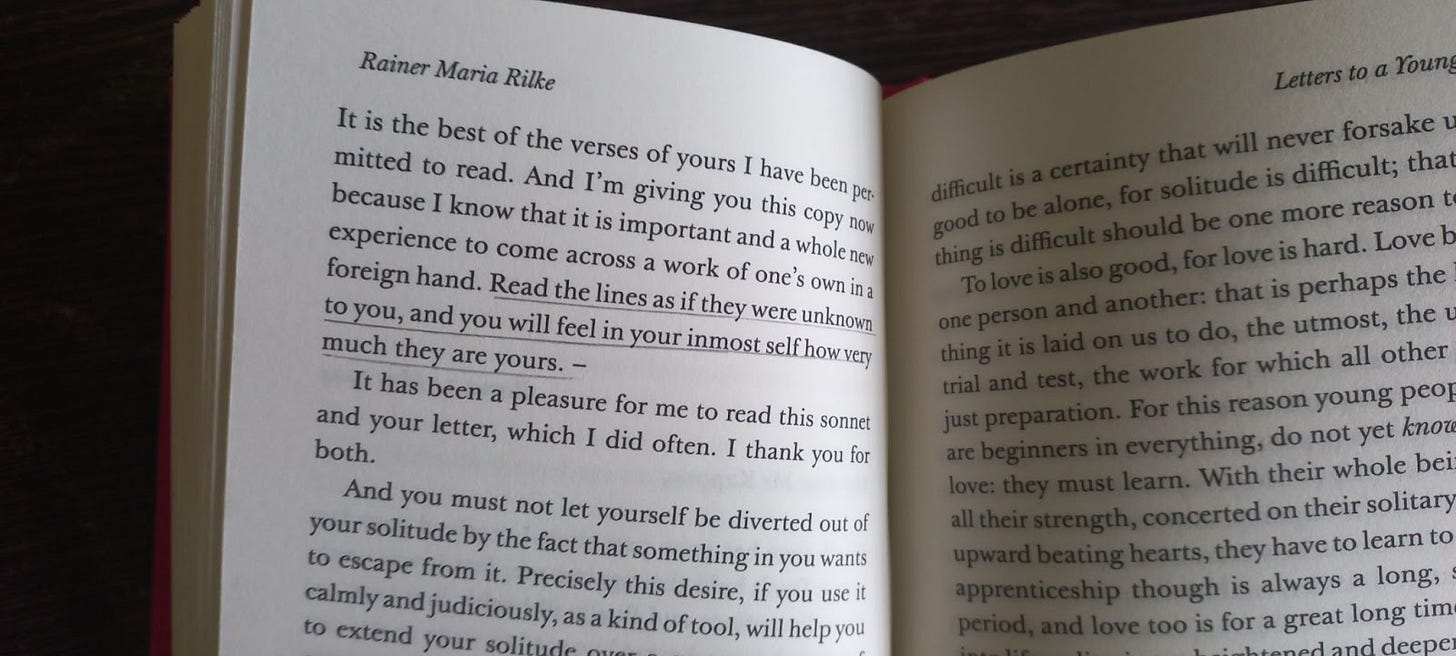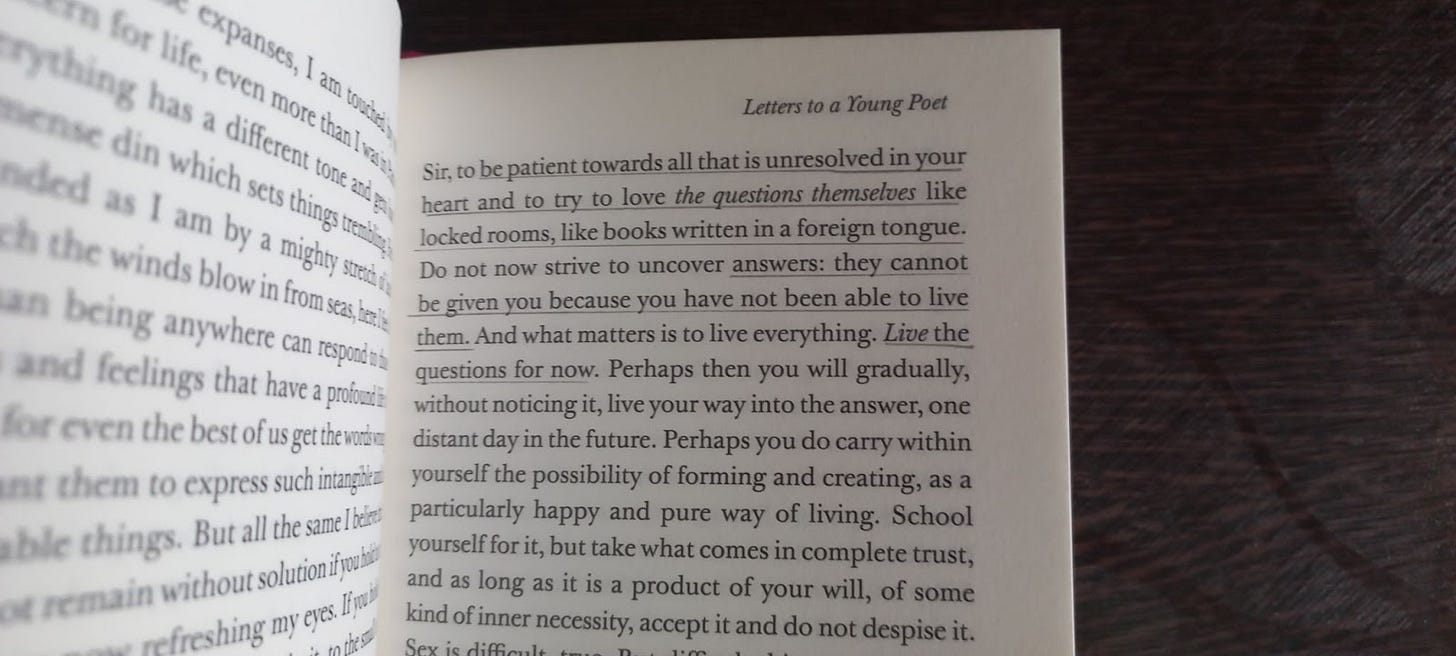Franz Xaver Kappus prefaces this collection of letters by saying: And where a great and unique person speaks, the rest of us should be silent. It is with this silence that I begin to write this article. This is just a humble attempt at sharing what resonated with me as essential to a poet’s craft. I also would like to acknowledge that for the complete wisdom of the author, one must read these letters by themselves. With that said, these are the craft lessons I take back from my first reading, along with some personal reflections.
1. Ask Yourself: Must I Write?
This is what my 2024 submissions tracker looks like. I try to take rejections sportively but they do sting each time and I can’t escape it. On some days I end up wondering if I’m actually as good as a poet as I pretend to be.Am I even fit to be writing poems?
I realize that in these moments, I must remember that I don’t write poems for end of year acceptance statistic. I don’t write for x number of likes on Instagram when I announce a publication after months. I don’t write to win a race.
The first time I ever wrote a poem, it was written on a handmade card for my father’s birthday. I loved him so much I wrote him a poem. Over time, I began writing about things I’d never dared utter aloud. I realize how a poem is a ritual and these words are my silent prayers.
Yet, even this feels superficial when I say it, which is why you should read Rilke:
2. Flee From General Subjects
When I began regularly writing poems, I would always write about romantic love. Somehow, it always left me feeling hollow. I never felt the happiness of putting together a metaphor, the freedom in saying something I was holding back or even the satisfaction of having written something. Another subject that I commonly wrote about at this time was nature—trees, birds and plants.
Now when I look back, this emptiness was because I wasn’t writing from a place of honesty. I was writing these things because that is what I thought poetry should speak about.
3. Admit You are Not Poet Enough
As an engineering student, I often find myself complaining about not having time to write. Or about how monotonous college life is because of which I don't have enriching experiences to write poems about. I realize how all these are merely excuses.
I need to humble myself and realize that not being able to see poetry around me is simply my personal failure and has nothing to do with my circumstances.
4. Good Art Rises Out of Necessity
This reminded me of Charles Bukowski’s poem ‘so you want to be a writer’.
The first time I read this poem, I was very disturbed. I’d been hearing advice that said one had to write every single day, even if the words don’t come to you, force it. A bad first draft is better than nothing. Edit and rewrite your poems a million times over before you submit them. All of this seems like practical advice.
And then you read this poem, or what Rilke has to say, and it takes everything you’ve just heard and hurls it outside the window.
5. Read Niels Lyhne
6. Try to Read Unlike a Critic
7. Read your poem as if it wasn’t yours
Though Rilke mentions it in the context of not doubting one’s own work, I think this would apply even to the process of editing a poem. This is why people advice to leave your poems aside for a few days or weeks and look at it with fresh eyes.
Would you hate your poem as much if it was written by someone else?
7. Live The Questions For Now
As a young poet, I realize that I am not going to have answers to everything I seek. I’m going to try living in the questions until I grow into their answers and worthy enough to maybe, write them.
Thank you so much for reading my first post for this newsletter. It’s been so long since I wrote something and realize how much this post reads like a diary entry. Yet, I hope you find something worth staying for. Thank you once again for your time.





